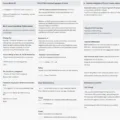The Need for Compassionate Counseling
In today’s complex world, many people face mental health challenges that can benefit from compassionate counseling and therapy. Seeking help takes courage, and progress requires an atmosphere of understanding.
Creating a Safe Space
Therapists thoughtfully design their spaces to be welcoming. Comfortable seating, neutral decor, and warm lighting set the stage for open dialog. Displaying diplomas builds credibility yet taking time to offer clients a beverage makes it feel less clinical.
Active Listening with an Open Mind
The key to counseling is mindfully hearing each client’s story without judgment. Therapists ask thoughtful questions to understand all aspects of a situation before carefully suggesting coping techniques or lifestyle changes.
Measuring Progress Over Time
Healing is a journey with ups and downs. Session notes help track treatment plans, while progress notes chronicle milestones. Reviewing these at opportune moments validates progress and the courage it takes to seek help.
FAQ
What makes a good counselor?
A trustworthy counselor who practices active listening, offers impartial guidance and tracks progress over time.
How often should you see a counselor?
Frequency depends on need. Many attend weekly sessions, while some find monthly check-ins helpful over the long term.
What happens during a counseling session?
Sessions involve open discussions where the counselor asks thoughtful questions, provides perspective and teaches healthy coping mechanisms.
Can counseling notes be subpoenaed?
Potentially yes, but ethical counselors keep detailed, factual records focused objectively on treatment plans and progress.
Do therapists take notes during sessions?
Many jot down brief session notes afterward to capture key topics discussed and progress made while staying focused on listening during sessions.

![46 Counseling Session Notes & Progress Note Templates [Therapist Forms]](https://d3b41cb77k0chc.cloudfront.net/wp-content/uploads/2024/04/46-counseling-session-notes-progress-note-templates-therapist-forms-710x210.jpg)







